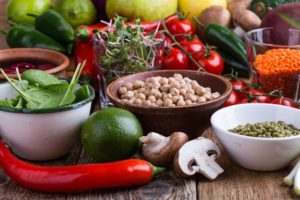 Gut health is a major area of study these days, and the results up to this point are astounding. “Friendly” gut bacteria can be a major contributor to good health, while unbalanced and harmful bacteria can promote inflammation and illness. But how can you acquire these good bacteria?
Gut health is a major area of study these days, and the results up to this point are astounding. “Friendly” gut bacteria can be a major contributor to good health, while unbalanced and harmful bacteria can promote inflammation and illness. But how can you acquire these good bacteria?
Genetics can influence your gut bacterial population to a certain degree. But what you eat is a significant player, and lucky for you, it’s completely modifiable. By adopting a more gut-friendly diet, you can improve nutrient extraction, delivery, and absorption from the food you eat; boost immune system strength, and fight back against inflammation and the illnesses associated with it.
Advertisement
A recent study from the Washington University School of Medicine in Seattle found that the best way to boost good gut bacteria is with a plant-based diet. The reason is that plant-based foods are rich in fiber and other nutrients that “feed” the good bacteria and promote growth.
Not only did plant-based foods foster healthy bacterial populations, but caloric intake did as well. They noted that 1,800 daily calories were ideal compared to the 3,000 that Americans typically consume each day. That may not seem like much, but plant-based foods are often far more filling than the processed foods so prevalent in the American diet. The fiber in plant-based foods his highly satiable, so there is less desire to eat more. Further, a diet made including lots of processed foods and fatty, greasy items promotes unhealthy gut bacteria, obesity, inflammation, and increased risk for chronic illness.
To enjoy the gut-booting benefits of plant-based foods, you don’t need to adopt a vegan or vegetarian lifestyle. Just focus on including more high-fiber plant foods into your diet and swap out some of the refined and processed stuff. Some foods that may have some added benefit for gut health include:
- Jerusalem artichoke
- Asparagus
- Leeks
- Onion
- Broccoli
- Kale
- Cabbage
- Beans
- Fermented foods (kefir, pickles, sauerkraut)
Fermented foods have probiotic capabilities, which introduce good bacteria into your system, and high-fiber nutrient-dense food off prebiotics that help feed and promote “good” bacterial growth. Getting a combination can help you improve gut health and enjoy all kinds of potential benefits.
